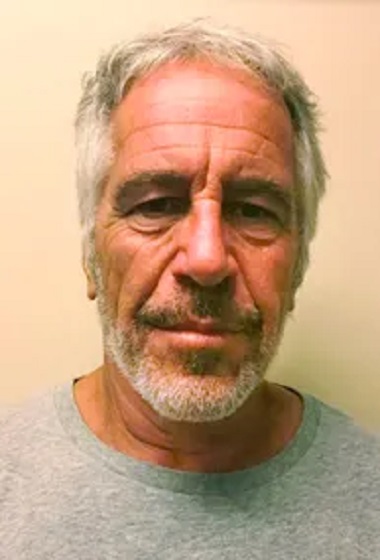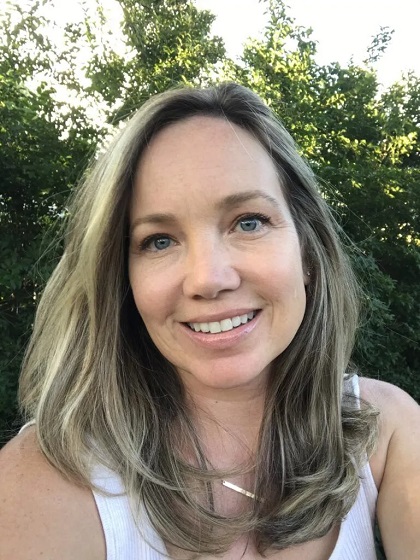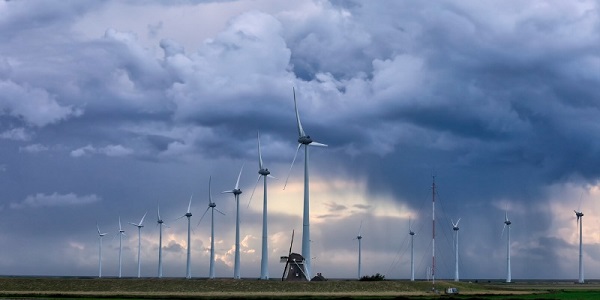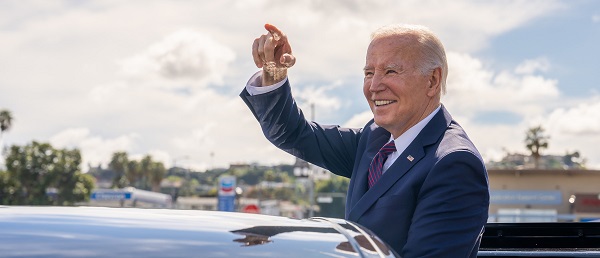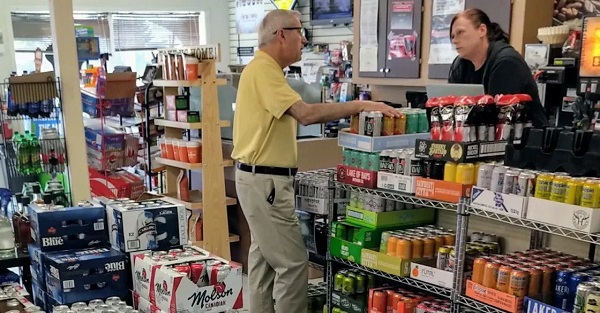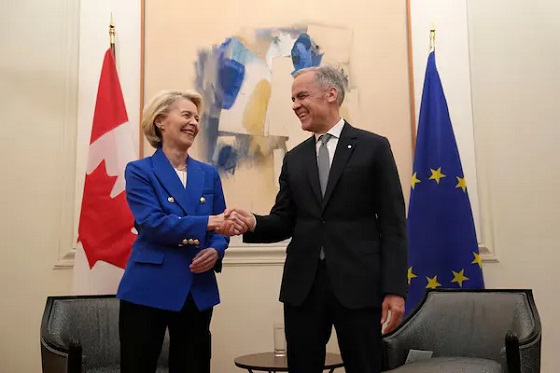Alberta
$602,000 of contraband tobacco seized in Red Deer
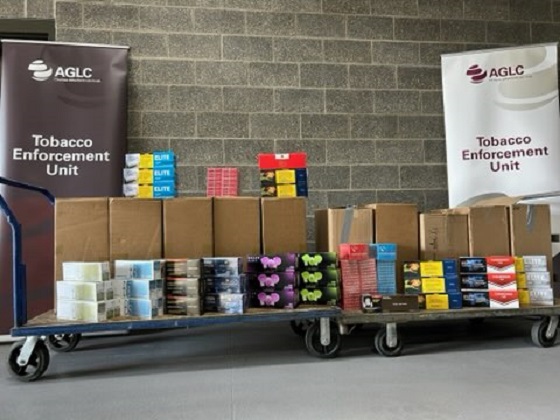
News release from AGLC
Alberta Gaming, Liquor and Cannabis’s (AGLC) Tobacco Enforcement Unit (TEU), with support from the Red Deer RCMP, seized illegal cigarettes worth approximately $602,000 from a home in Red Deer.
After a month-long investigation, officers confiscated more than 3,400 cartons, representing over $207,000 in avoided provincial taxes. Authorities charged Ali Abdulhseen Al-Hameedawi of Red Deer with possessing and selling unstamped tobacco and committing fraud over $5,000.
Illegally manufactured contraband products pose public health and safety risks as they lack regulatory controls and inspections oversight. AGLC and its partners are committed to a coordinated contraband tobacco enforcement program in Alberta to crack down on groups and individuals engaged in illegal activities.
In the last year, the TEU led more than 255 investigations, resulting in the seizure of over 237,000 cartons equaling an estimated retail value of over $40 million in contraband tobacco taken off Alberta’s streets.
Contraband tobacco:
- is any tobacco product that does not comply with federal and provincial laws related to importation, marking, manufacturing, stamping and payment of duties and taxes;
- comes from four main sources: illegal manufacturers, counterfeits, tax-exempt diversions and resale of stolen legal tobacco; and
- can be recognized by the absence of a red (Alberta) or peach/light tan (Canada) stamp bearing the “DUTY PAID CANADA DROIT ACQUITTÉ” on packages of cigarettes and cigars or pouches of tobacco.
Albertans who suspect illegal tobacco production, packaging and/or trafficking are encouraged to contact AGLC’s Tobacco Enforcement Unit at 1-800-577-2522. If you wish to remain anonymous, please contact Crime Stoppers at 1-800-222-TIPS (8477).
Under a Memorandum of Understanding with Alberta Treasury Board and Finance, AGLC enforces the Tobacco Tax Act and conducts criminal investigations related to the possession, distribution and trafficking of contraband tobacco products. In 2023-24, provincial revenue from tobacco taxes was approximately $439 million.
For more information on contraband tobacco in Alberta, visit aglc.ca/contraband-tobacco.
Alberta
Albertans should question any calls for more money from municipal governments

From the Fraser Institute
By Ben Eisen and Austin Thompson
In Cochrane, an ordinary park bench costs between $5,000 and $7,000. The City of Calgary will spend $515 million of taxpayer money to build a new arena for the Flames. Edmonton fire stations cost 63 per cent more than comparable facilities elsewhere—an independent report suggests “the largest portion of the cost premium… is attributed to the City of Edmonton’s Climate Resilience policy.”
According to our recent study, from 2008 (the earliest year of available data) to 2023 (the latest year of data), total spending by municipal governments around the province increased from $3,187 per person to $3,750. That’s an increase of 18 per cent (inflation-adjusted). During the same period, total municipal property tax revenue increased by 13 per cent (inflation-adjusted).
In light of these spending and tax increases, it’s fair to ask—have your local municipal services improved in recent years?
Well, it depends on who you ask. But a 2025 survey conducted by the City of Calgary found that only 46 per cent of residents said they receive “good” value for their property tax dollars (rather than “neutral” or “poor”). Satisfaction with the overall level and quality of municipal services declined from 76 per cent in 2017 to 61 per cent in 2025. And only about 9 per cent of Calgarians want the city to increase taxes beyond the current inflation rate to expand services, with the rest preferring to maintain or reduce taxes.
Albertans in other municipalities share similar concerns. According to a 2024 city survey, the vast majority of Edmontonians said winter road maintenance is “very important” but only 45 per cent report being satisfied with this municipal service. And according to a 2023 survey of citizen satisfaction, only 11 per cent of the residents of Grande Prairie County want to “increase taxes to expand services.”
Meanwhile, evidence of municipal waste is not hard to find.
In Cochrane, an ordinary park bench costs between $5,000 and $7,000. The City of Calgary will spend $515 million of taxpayer money to build a new arena for the Flames—this is splashy corporate welfare with dubious public benefits. Edmonton fire stations cost 63 per cent more than comparable facilities elsewhere—an independent report suggests that “the largest portion of the cost premium… is attributed to the City of Edmonton’s Climate Resilience policy.”
In short, municipal spending has increased significantly but many Albertans do not see how this increase translated into better services that have improved their lives. This should make taxpayers and senior levels of governments skeptical of claims from municipalities that they need even more money to help deliver core services. (For example, Alberta’s municipalities claim they need an additional $30 billion to maintain local infrastructure such as roads, wastewater systems and recreational facilities.)
Are you getting good value for your property tax dollars? For many Albertans, the answer appears to be “no.” Until municipalities can demonstrate that existing resources are being used effectively, calls for even more funding should be met with healthy skepticism.
Alberta
World’s first direct air capture test centre to open doors in Innisfail

From the Canadian Energy Centre
Deep Sky Alpha facility will trial technologies that suck CO2 from the sky
Innisfail, Alta. is set to host the world’s first test centre for technology that removes carbon dioxide directly from the air to fight climate change.
This June, Montreal-based Deep Sky completed construction of a $110-million carbon removal innovation and commercialization centre in the town about 120 kilometres north of Calgary.
It is a key piece of the company’s vision to build 100 large-scale facilities across Canada and become a pioneer in the emerging market for direct air capture (DAC) technology.
“As of this summer, we will begin not only carbon removal, which is actually sucking it out of the air through these very powerful fans, but also liquefying it and then putting it underground for storage,” Deep Sky CEO Alex Petre told CTV News.
Work began in August 2024 on the project known as Deep Sky Alpha, which aims to begin testing up to 10 different DAC technologies in real-world conditions. It is expected to be up and running this August.
The Government of Alberta is investing $5 million in the facility through Emissions Reduction Alberta.
Deep Sky’s facility will capture up to 3,000 tons of CO2 per year over the next 10 years, with room for future expansion.
Captured CO2 will be transported by tanker trucks about 200 kilometres north to Sturgeon County where it will be injected more than two kilometres below the surface into the Meadowbrook Carbon Storage Hub.
Operated by Bison Low Carbon Ventures, the project is the first approved under Alberta’s open-access carbon sequestration hub initiative and is expected to begin operations before year-end.
“We’re going to line up these eight units side by side and run them to see how they operate in the summer and in the cold of winter,” said Damien Steel, former Deep Sky CEO who continues to serve as a company advisor.
“We’ll be tracking everything to see how all these best-in-class technologies compare – what are their strengths and weaknesses – so that ultimately we can choose the best solutions to scale up for the major commercialization of carbon removal projects that are needed.”
Unlike typical carbon capture and storage (CCS) projects that scrub CO2 from the exhaust of heavy industrial facilities such as power plants, refineries, cement plants or steel mills, DAC utilizes different technology to remove much lower concentrations of CO2 directly from the atmosphere.
According to the International Energy Agency (IEA), there are 27 DAC plants operating worldwide, capturing almost 10,000 tonnes of CO2 per year. In order to reach net zero emissions by 2050, the IEA estimates DAC capacity must expand to more than 60 million tonnes per year by 2030.
Deep Sky selected Alberta for its test facility because of the province’s experience with CCS, including its advanced regulatory system for CO2 sequestration.
“To be successful at carbon removal you need three things: you need access to geologic storage, you need talent, and you need a reliable supply of renewable power to operate DAC facilities. Canada is blessed with these things, and Alberta especially has all of these attributes in spades,” Steel said.
Deep Sky Alpha is one of several clean tech projects underway in a five-acre industrial park in Innisfail as part of an economic diversification plan that was launched in 2022 to make the town a centre for energy innovation.
A municipal solar farm and a power plant that burns garbage and will be equipped with CCS to eliminate emissions are also under development.
Deep Sky says that more than 110 jobs were created during the construction phase of its Innisfail project and it will employ 15 people for annual operations.
Subsequent commercial plants it hopes to build across Canada will employ approximately 1,000 workers for construction and 150 for annual operations.
Steel said he expects the DAC test facility will become a destination for those looking to advance CCS projects around the world, showcasing Canadian expertise in the process.
“My hope is that not only will we learn and improve carbon removal technology, but we will also put Canada on the map in terms of being a place where innovation can thrive and this industry can work,” he said.
“It will be a place where corporate leaders, government officials and customers from around the world can come and see what direct air capture really is, how it works, and how Canada is the place to do it.”
-

 COVID-192 days ago
COVID-192 days agoAmerican lawyer calls on Trump to sanction Canada if Freedom Convoy leaders are jailed
-

 Addictions2 days ago
Addictions2 days agoToronto offering free drug kits with pipes, syringes across city
-

 Health2 days ago
Health2 days agoPatients are being taken for organ retrieval while still alive
-
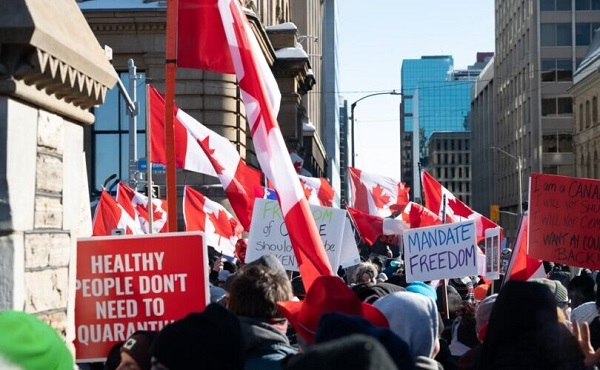
 COVID-191 day ago
COVID-191 day agoProsecutors claim Lich, Barber led occupation of Ottawa during Freedom Convoy protests
-

 Break The Needle2 hours ago
Break The Needle2 hours agoNew drug cartel terrorist designations raise legal risks for Canadian banks
-

 Frontier Centre for Public Policy1 day ago
Frontier Centre for Public Policy1 day agoThe RCMP Used To Uphold The Law. Now It’s Enforcing An Ideology
-
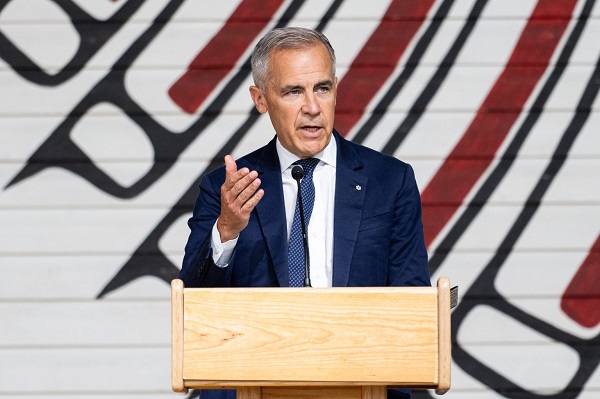
 Business1 day ago
Business1 day agoMajor projects in Western Canada are essential, but they require broad and genuine coalitions.
-
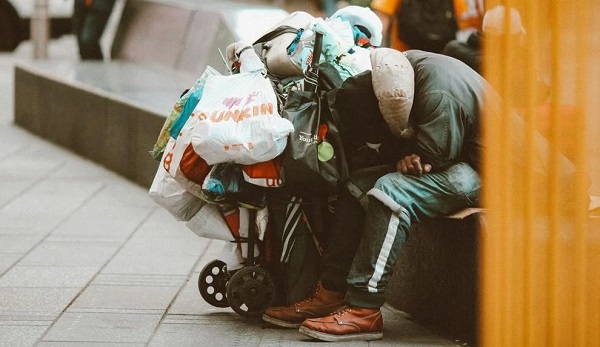
 Housing19 hours ago
Housing19 hours agoTrump executive order moves get homeless off the streets

